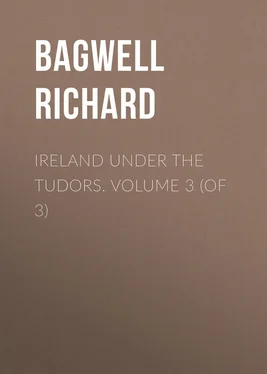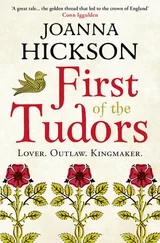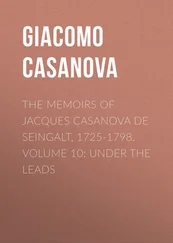Richard Bagwell - Ireland under the Tudors. Volume 3 (of 3)
Здесь есть возможность читать онлайн «Richard Bagwell - Ireland under the Tudors. Volume 3 (of 3)» — ознакомительный отрывок электронной книги совершенно бесплатно, а после прочтения отрывка купить полную версию. В некоторых случаях можно слушать аудио, скачать через торрент в формате fb2 и присутствует краткое содержание. Жанр: foreign_antique, foreign_prose, на английском языке. Описание произведения, (предисловие) а так же отзывы посетителей доступны на портале библиотеки ЛибКат.
- Название:Ireland under the Tudors. Volume 3 (of 3)
- Автор:
- Жанр:
- Год:неизвестен
- ISBN:нет данных
- Рейтинг книги:3 / 5. Голосов: 1
-
Избранное:Добавить в избранное
- Отзывы:
-
Ваша оценка:
- 60
- 1
- 2
- 3
- 4
- 5
Ireland under the Tudors. Volume 3 (of 3): краткое содержание, описание и аннотация
Предлагаем к чтению аннотацию, описание, краткое содержание или предисловие (зависит от того, что написал сам автор книги «Ireland under the Tudors. Volume 3 (of 3)»). Если вы не нашли необходимую информацию о книге — напишите в комментариях, мы постараемся отыскать её.
Ireland under the Tudors. Volume 3 (of 3) — читать онлайн ознакомительный отрывок
Ниже представлен текст книги, разбитый по страницам. Система сохранения места последней прочитанной страницы, позволяет с удобством читать онлайн бесплатно книгу «Ireland under the Tudors. Volume 3 (of 3)», без необходимости каждый раз заново искать на чём Вы остановились. Поставьте закладку, и сможете в любой момент перейти на страницу, на которой закончили чтение.
Интервал:
Закладка:
In the meantime, O’Rourke had risen and attacked Maltby’s garrison at Leitrim. The President had but 400 English, half of whom were newcomers and ‘simple enough,’ and he had to ferry them over the flooded Shannon in cots. The gentlemen of the county advised him not to face such great odds, but 100 of their kerne behaved well, and he put a bold face on it. The O’Rourkes and their Scots allies railed exceedingly against the Queen and exalted the Pope; but they did not dare to face the dreaded President, and disappeared, leaving him to burn Brefny at his will. Ulick Burke seemed at first inclined to serve faithfully, and Maltby was disposed to trust him, but John and William were in open rebellion, and their youngest sister begged for protection. ‘I pray you,’ she wrote to the President, ‘receive me as a poor, destitute, and fatherless gentlewoman… I found nowhere aid nor assistance, and no friends since my lord and father departed, but what I found at your worship’s hands.’ A few days later Ulick styled himself MacWilliam, and joined John, who accepted the position of Tanist, in forcibly collecting corn for the papal garrison. They announced that they would hang all priests who refused to say mass, and Maltby reported that the papal Bishop of Kilmacduagh was leading them to the devil headlong. They demolished Loughrea, and most of the castles between the Shannon and Galway Bay. Communications with Munster were interrupted, and Maltby, self-reliant as he was, began to fear for the safety of Galway, where there was no stock of provisions, and no artillery worth mentioning. Affairs were at this pass when Grey’s success at Smerwick reduced the rebellion in Connaught to insignificance. 68 68 Lady Honora Burke to Maltby, October 29, 1580; Maltby to Walsingham, October 25, October 27, and November 17; Gerard to Burghley, November 27; Four Masters .
Grey was not long in Ireland before he encountered the great Elizabethan problem of how to make bricks without straw. Treasurer Wallop estimated the soldiers’ pay at 6,000 l. worth, exclusive of extraordinaries, and the victualling difficulties were as great as ever. The English officials in Dublin seldom gave Ormonde a good word, but on this head their complaints chimed in with his. The victualler at Cork warned him not to reckon on more than twelve days’ biscuit and wine, and there were no means of brewing at Cork. ‘I know,’ said the Earl, ‘it is sour speech to speak of money; I know it will be also wondered at how victuals should want… I never had for me and my companies one hundred pounds worth of victual, and this being true, I can avow that some have told lies at Court to some of your councillors – yea, not only in this, but in many other things.’
‘The soldiers,’ said Sir William Stanley, ‘are so ill chosen in England that few are able or willing to do any service, but run away with our furniture, and when they come into England there is no punishment used to them, by means whereof we can hardly keep any.’
Meantime there were loud complaints of abuses in purveyance for the Viceregal household, and the Irish Council could think of no better plan than to swear the purveyors, and cut off their ears in case of perjury. Wallop reported that bribes were openly taken in official circles; that was the usual course, though he had never given or taken any himself. 69 69 Ormonde to Walsingham and to Burghley, September 28, 1580; J. Thickpenny to Ormonde, September 27; Stanley to Walsingham, October 2; order by the Lord Deputy and Council, October 3; Wallop to Walsingham, November 12.
When Grey went to Munster he left Kildare to act as general in the Pale. With the whole force of the country, and with 1,400 men in the Queen’s pay, including garrisons, he undertook to defend Dublin to the south, and to do some service against the rebels. Six hundred men were on the Ulster frontier, and these also were to be at his disposal in case of necessity. He and his son-in-law, the Baron of Delvin, were accused of conspiring to turn the war to their own advantage, by promising everything and doing nothing. Should the Pope’s title prevail, they would be all-powerful; should the Queen be victorious they would at least make money out of the business. It was arranged that Kildare should have 600 men paid by the country in addition to the Queen’s troops. He preferred to take the money, and to raise 400 kernes himself; ‘but I think,’ said Wallop, ‘he will put all that in his purse and three parts of his entertainment of his horsemen, and fifty shillings a day for his diet. In this town he lieth for the most part, and spendeth not five pounds a week, keeping his chamber with a board not anyways an ell long.’ A civilian named Eustace, ‘properly learned, but a papist in the highest degree,’ was accused of fomenting treason among the nominally loyal, and Gerard, by remaining ‘a secret ghostly father to him for a time,’ made him fear for his own neck, and induced him to give information against many persons in the Pale. Maltby took care to remind the Irish Government that both Kildare and Ormonde had given security for John and Ulick Burke, and that Kildare was the same man that he had always been and always would be. It was plain that those to whom the conduct of the war was entrusted did not care to end it, and that only English officers and soldiers could really be depended on. An occasional raid into the Wicklow mountains did not advance matters much, and Feagh MacHugh was able to burn Rathcoole, a prosperous village ten miles from Dublin, and to make the very suburbs tremble for their own safety. Kildare made light of the burning of Rathcoole, and threw the blame on inferior officers; but this was not the view taken by the Council generally. 70 70 Wallop to Walsingham, October 9 and 25, and November 27; to Burghley, November 11, 1580; Waterhouse to Walsingham, October 13; Lord Chancellor and Council to the Privy Council, November 3; Gerard to Burghley, October 18; Captain R. Pypho to Walsingham, November 9; Kildare to Walsingham, December 10. Writing to Wallop, on November 17, Maltby says of Kildare, ‘sicut erat in principio et tel il sera toute sa vie.’ The letter is a queer mixture of Latin, French, and cypher.
When Grey returned to Dublin he found the whole official circle bent upon disgracing Kildare, and after some days’ consideration he summoned the general body of nobles to meet the Council, ostensibly for the discussion of military dispositions. Delvin saw that he was suspected, and vehemently demanded an enquiry, putting in a written declaration in answer to rumoured accusations. The full Council, including Kildare, found this statement inconsistent with known facts, and committed him to the Castle. Then Gerard, who had conducted the private investigation, rashly disclosed his whole case, and openly accused the Earl of complicity with the treason of Baltinglas. Wallop, who believed that no good thing could come out of Galilee, observed that the Chancellor ‘would needs have the attorney and serjeant by, who are of this country birth, and so were many councillors then present, by means of which it is now in every man’s mouth what the Earl is to be charged with.’
The Vice-Treasurer adds that his lands were worth 3,000 l. a year, but that he had taken good care to return them to England as worth only 1,500 l. , that the only road towards good government lay through severity, and that unless traitors were made to pay both in person and lands, Ireland would always be what it long had been, – ‘the sink of the treasure of England.’ Waterhouse, whose office it was to look after unconsidered trifles of revenue, thought the original cause of war was Kildare’s military commission, and that treason should be made to pay its own expenses. ‘I will hear your honour’s opinion,’ he wrote to Walsingham, ‘whether her Majesty will be content to have her great charges answered out of the livings of the conspirators, and to use a sharp and a severe course without respect of any man’s greatness, wheresoever law will catch hold, or whether all faults must be lapped up in lenity with pardons, protections, and fair semblance, as in times past; if severity, then is there hope enough of good reformation; if mildness, then discharge the army and officers, and leave this nation to themselves, for sure the mean will do no good. We must embrace one of these extremities.’ 71 71 Wallop and Waterhouse to Walsingham, December 23, 1580.
Интервал:
Закладка:
Похожие книги на «Ireland under the Tudors. Volume 3 (of 3)»
Представляем Вашему вниманию похожие книги на «Ireland under the Tudors. Volume 3 (of 3)» списком для выбора. Мы отобрали схожую по названию и смыслу литературу в надежде предоставить читателям больше вариантов отыскать новые, интересные, ещё непрочитанные произведения.
Обсуждение, отзывы о книге «Ireland under the Tudors. Volume 3 (of 3)» и просто собственные мнения читателей. Оставьте ваши комментарии, напишите, что Вы думаете о произведении, его смысле или главных героях. Укажите что конкретно понравилось, а что нет, и почему Вы так считаете.












